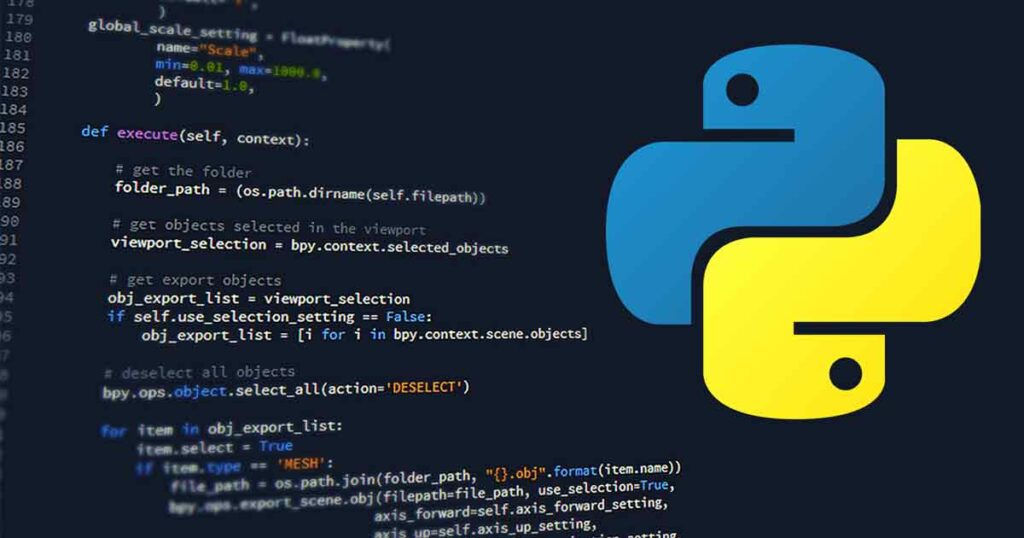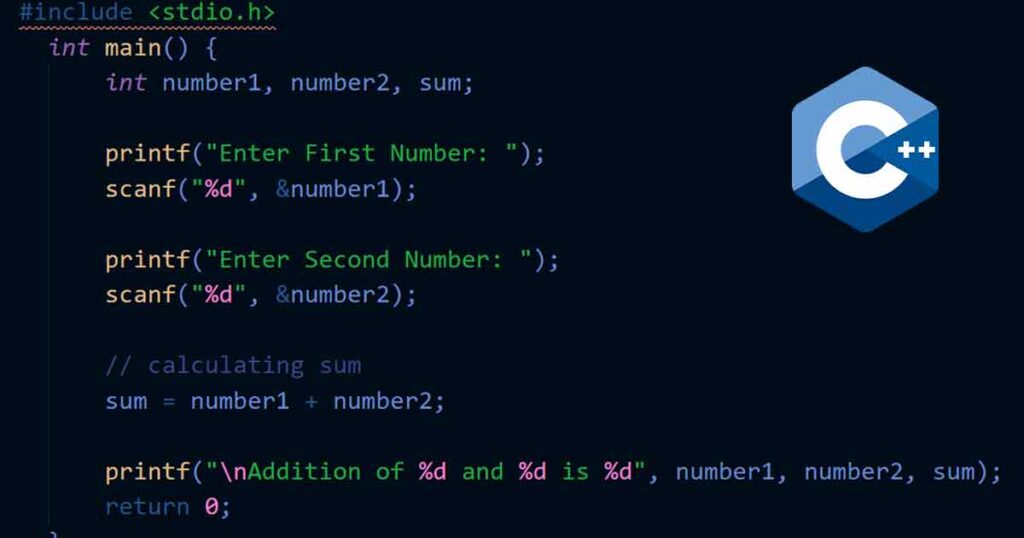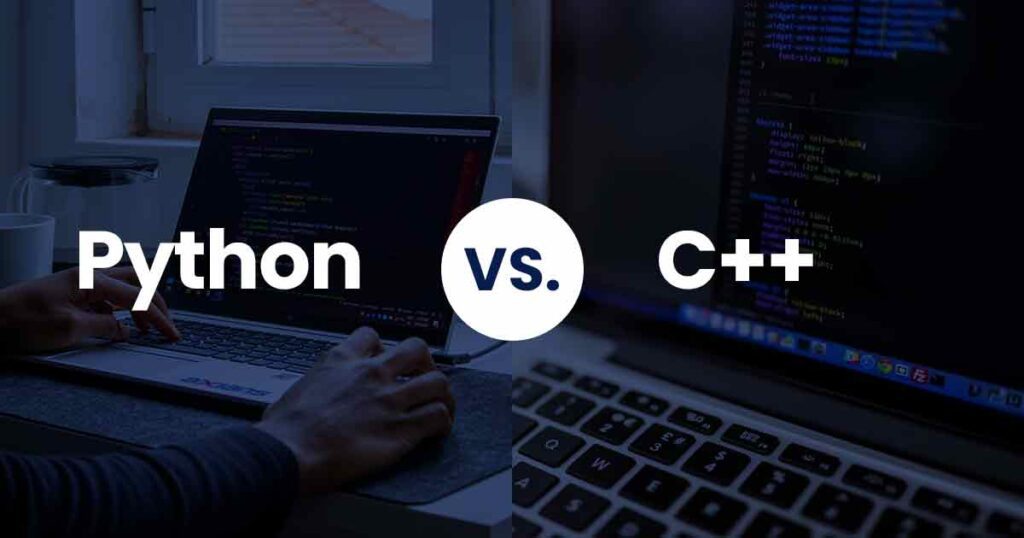In the ever-evolving world of programming, choosing the right language can be a daunting task. Python and C++ are two prominent programming languages, each with its own set of strengths and weaknesses.
While Python is celebrated for its simplicity and versatility, C++ boasts speed and performance. In this article, we'll dive deep into the Python vs. C++ debate, exploring their features, use cases, and which one might be the better choice for your specific needs.

Python: The Simplicity Champion
- Python's Ease of Learning and Readability
Python is often hailed as one of the easiest programming languages to learn and read. Its clean and concise syntax makes it an excellent choice for beginners. Python code is highly readable and resembles plain English, making it accessible to those new to programming.
- Rapid Development and High-Level Abstraction
Python's high-level nature allows developers to focus on solving problems rather than dealing with low-level details. This results in rapid development, making Python a favorite for web development, data science, and scripting tasks. Libraries like NumPy, Pandas, and TensorFlow extend Python's capabilities for data analysis and machine learning.
- Versatility and Cross-Platform Compatibility
Python is a versatile language, compatible with various platforms, including Windows, macOS, and Linux. Its extensive standard library provides a wide range of modules and packages, simplifying tasks like file handling, networking, and database operations.

C++: The Performance Powerhouse
- Unmatched Speed and Efficiency
C++ is known for its performance and efficiency. It allows developers to write code that executes at near machine-level speed, making it an ideal choice for applications demanding high performance, such as game development and system-level programming.
- Low-Level Control and Memory Management
C++ provides low-level control over hardware resources, enabling developers to optimize memory usage and manipulate data structures at a granular level. This level of control is crucial in fields like embedded systems and real-time applications.
- Strong Typing and Static Analysis
C++ enforces strong typing and static analysis, catching many errors at compile time rather than runtime. This helps in creating robust and error-free applications, especially when safety and reliability are paramount.

Python vs. C++: Use Cases
When to Choose Python?
- Prototyping and Rapid Development: Python's simplicity and readability make it an excellent choice for prototyping and quickly developing proof-of-concept applications.
- Web Development: Python's frameworks like Django and Flask simplify web development, allowing developers to create powerful web applications with ease.
- Data Science and Machine Learning: Python's extensive libraries, such as SciPy, scikit-learn, and PyTorch, make it the go-to language for data analysis and machine learning projects.
- Automation and Scripting: Python's scripting capabilities make it invaluable for automating repetitive tasks and creating scripts for various purposes.
When to Choose C++?
- High-Performance Applications: If your project requires maximum speed and efficiency, such as video games, real-time simulations, or resource-intensive software, C++ is the better choice.
- System-Level Programming: C++ is commonly used for developing operating systems, device drivers, and other low-level software components.
- Resource-Constrained Environments: In embedded systems and environments with limited resources, C++'s fine-grained memory control can be a game-changer.
- Safety-Critical Applications: When safety and reliability are paramount, C++'s strong typing and compile-time checks can help prevent errors that might lead to system failures.
Python vs. C++: Performance Comparison
Performance is a crucial factor in choosing between Python and C++. Python's interpreted nature can lead to slower execution speeds compared to C++, which is a compiled language. In applications where every microsecond counts, C++ often outperforms Python.
However, Python's performance has been significantly improved with the use of Just-In-Time (JIT) compilers like PyPy and Cython. These tools can make Python code run much faster and approach the performance of C++ in some cases.
Python vs. C++: Community and Ecosystem
Both Python and C++ have vibrant and supportive communities. Python's community is renowned for its inclusivity and helpfulness, making it an excellent choice for beginners seeking guidance. The Python Package Index (PyPI) offers a vast collection of open-source libraries and packages that simplify development tasks.
C++, on the other hand, has a rich ecosystem of libraries and frameworks, especially in domains like game development, where engines like Unreal Engine rely heavily on C++. The C++ Standard Library provides a wealth of functionality, although it may not be as accessible as Python's libraries for newcomers.
Python vs. C++: Popularity and Job Market
Python has experienced explosive growth in popularity, becoming one of the most sought-after programming languages in recent years. Its versatility and relevance in emerging fields like data science and artificial intelligence have contributed to its increasing demand in the job market.
C++ remains a popular choice for specific domains, such as game development and systems programming. Jobs that require C++ expertise often offer competitive salaries, but the overall demand may be lower compared to Python.
Python vs. C++: Which Language Should You Choose?
Choosing between Python and C++ ultimately depends on your project's requirements, your familiarity with the language, and your career goals. Here are some considerations:
Choose Python if:
- You are a beginner looking to learn programming.
- Your project involves data analysis, machine learning, or web development.
- Rapid development and readability are priorities.
Choose C++ if:
- Your project demands maximum performance and efficiency.
- You are working on game development, real-time simulations, or system-level programming.
- Low-level memory control and strong typing are essential.
In some cases, a hybrid approach is the best solution. Combining Python for high-level tasks and C++ for performance-critical components can provide an optimal balance between ease of development and execution speed.
Conclusion
Python and C++ are both powerful programming languages, each with its unique strengths. The choice between them should be guided by the specific requirements of your project and your career goals.
Whether you opt for Python's simplicity or C++'s performance, both languages offer valuable skills that can propel you to success in the dynamic world of programming. Ultimately, the best language is the one that empowers you to bring your ideas to life efficiently and effectively.



